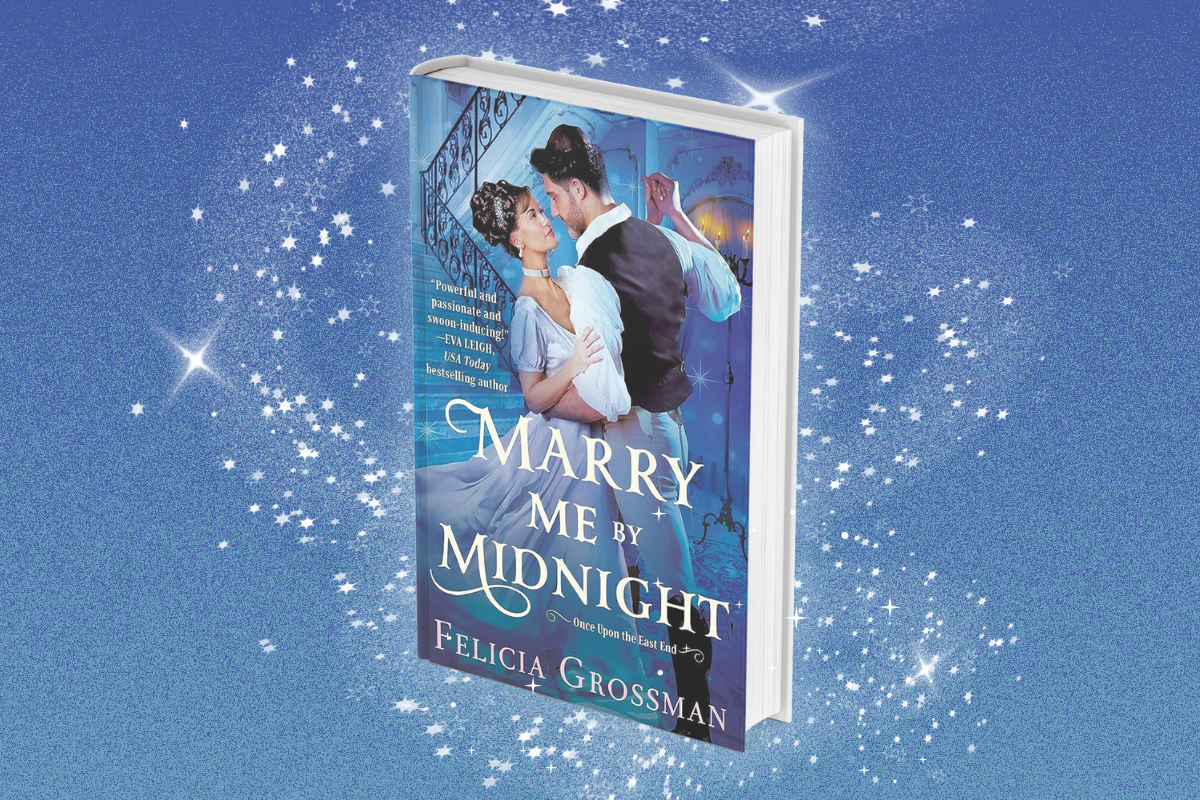I will admit, I’ve always had a mixed relationship with the genre of Regency Romance.
On the one hand, I rarely pass up the opportunity to inhale something sexy set in the early decades of the 19th century. The history and material culture of that time period are endlessly fascinating to me. But it’s also hard not to feel persistently like an outsider to the genre. Regency romance is traditionally a fantasy-tinged depiction of wealth and affluence in early 19th century England, and traditional romance publishing — which thrives on tropes and meeting specific reader expectations — has left little room for anyone who doesn’t fit into the narrow world of the British gentry. In addition to intense antisemitic prejudice, Jews in this period had yet to achieve legal emancipation, which taken together would by and large prevent them from access to or acceptance in the worlds these novels portray.
It also doesn’t help that certain failures of the imagination often plague how we understand 19th century Jewish history. The lives of early 19th century middle-class Jews in the U.K. and U.S. have had a tremendous impact on Jewish life in the English-speaking world today. But it’s often overlooked in fiction due to a tendency to start the American or British Jewish story with the waves of immigration that would come only after.
Which is what makes “Marry Me By Midnight,” the newly released Regency Romance novel by Felicia Grossman, such joyful and essential reading.
“Marry Me By Midnight” is a gender-swapped take on Cinderella which finds Isabelle Lira, the daughter of a respected and established Sephardic family in London’s Jewish East End in 1832, racing to find a suitable husband after her father’s death leaves their family’s fortunes and community standing in flux. She enlists Aaron Ellenberg, the poor synagogue custodian, to help her vet the potential matches because of his valuable insights into the character of her potential suitors. Of course, things don’t quite turn out the way Isabella might have envisioned, but like any good romance novel, it all ends in a delightful Happily Ever After.
Grossman’s work is imbued with a sharp sense of historical continuities in Jewish life, and the way this time period in particular speaks to our present. When I spoke with her, she put it this way: “One thing about Judaism is that who you are, and how you think, practice and see the world, is often determined by the community in which you live as much or if not more than who your literal ancestors were.” She went on to say, “This is our history and often helps explain why our communities are structured in certain ways… It’s both comforting and frustrating that many of the issues we see in our communities now have always been things we’ve struggled with, and the past can offer both solutions and warnings.”
Like her previous books, “Appetites and Vices” and “Dalliances and Devotions,” Grossman deftly balances authentic details with swoony romance. The Jewish historic and cultural content is robust. Rather than shoe-horning these characters into situations and circles they would never have had access to, Grossman instead finds the traditional Regency Romance beats in Jewish community life of the time. The balls and parties that are mainstays of the genre are planned around the Jewish holidays. Class tensions emerge around the divide between wealthy and established Sephardim and poorer Ashkenazim, and the strict social rules and decorum are set not by the “Ton,” upper-class English society, but by the community and specifically the “Commission of Delegates,” Grossman’s nod to Britain’s real-life Board of Deputies. The book’s Jewishness even extends to the cover, which to the best of my knowledge is the first time a traditionally-published historical romance has the dashing hero wearing a kippah and tzitzit.
What truly sets Grossman’s work apart though is the depth and detail with which she writes Jewish community life. Her characters are always presented as being part of an extended Jewish network bigger than themselves. “I wanted that community to be like it really was and ours are now,” says Grossman, “imperfect, but beautiful and worthwhile. Filled with people who are cliquey, judgmental, selfish, egotistical, snotty and biased but who also care, and work hard, and love, and show bravery and loyalty and the best of our values.”
Most importantly, the book does all of this, managing some of the most impressive world-building I’ve encountered in historical romance, while being fun. This book’s steamy love scenes, playful nods to multiple sources of Cinderella lore, and sharp wit make it a delight to read from start to finish. In a world where Jewish historical fiction almost inevitably tends dark, and where much of publishing still treats Jews as objects for non-Jewish stories of heroism, it’s rare to find an author who can do what Grossman does and do it so well, who can consistently write well-earned and unapologetically Jewish happily ever afters. I cannot wait for what Grossman does next, and hope (post Hollywood strikes) that the television powers that be take notice.



